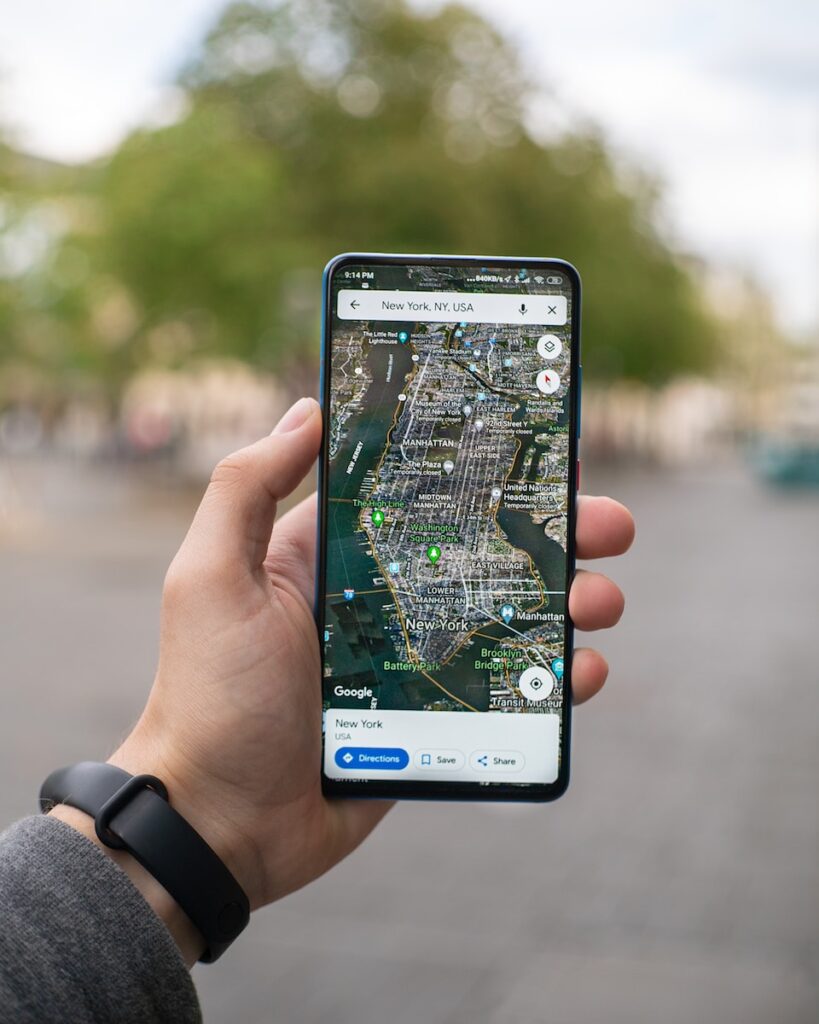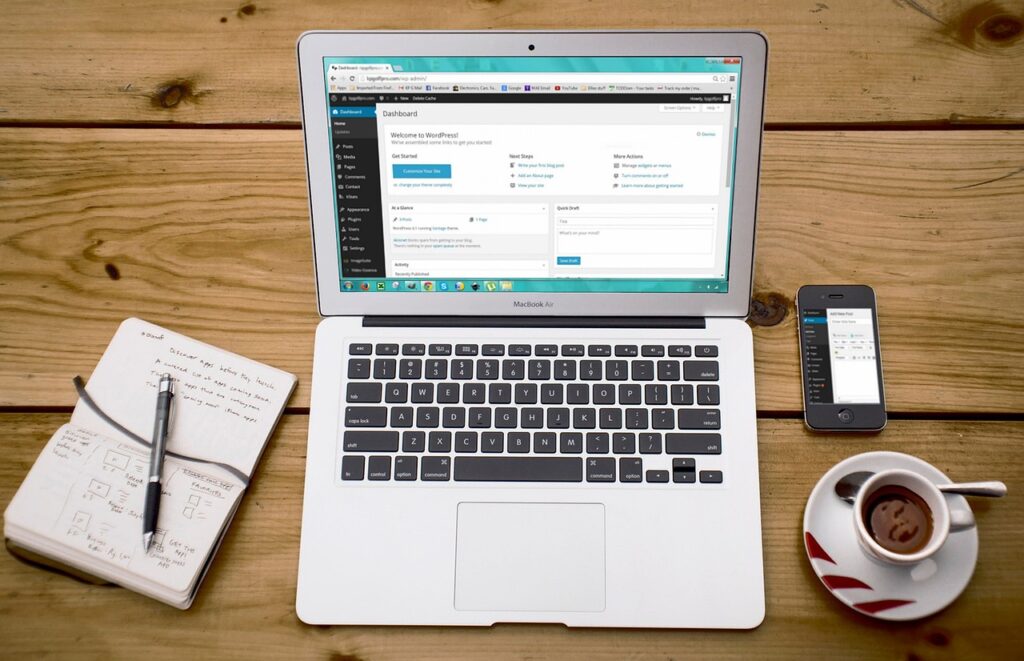While remote work is on the rise, many professionals still face the challenge of commuting to the office every single day. Thus, for most of us, commute optimization is a need.
Now, imagine turning your daily commute into a powerful tool for productivity and personal growth. As a dedicated trauma surgeon deeply committed to efficiency, healthy living, and personal development, I know firsthand the value of seizing every opportunity, including my commute.
I will share with you the tactics I have developed over the last two years, which will enable you to transform your daily commute into a valuable resource for personal and professional advancement.
Table of Contents
1. Strategic Journey Planning
Mastering commute optimization begins with strategic journey planning, where you proactively optimize your route, time, and transportation modes to make your daily commute as efficient and stress-free as possible. By taking control of these factors, you can transform your journey into a productive and enjoyable experience.
Google Maps is one powerful tool for route and commute optimization. If you asked me any tips for commuting to work by car, this would be my number one tip. This user-friendly app allows you to plan your route in advance, providing real-time traffic updates and suggesting alternative paths to avoid congestion. By leveraging the features of Google Maps, you can discover the fastest and most efficient route to your destination. For example, if you notice heavy traffic on your usual route, the app may recommend an alternative path that can save you valuable time.

Additionally, experimenting with different departing times can have a significant impact on your commute experience. Consider adjusting your schedule to avoid peak hours when roads and public transportation are congested. By leaving a bit earlier or later, you can enjoy a smoother and more relaxed journey.
When optimizing your commute, it’s essential to explore different transportation modes available to you, such as buses and trains. Compare the benefits of each option, considering factors like cost, convenience, and travel time. For example, taking public transportation can allow you to relax, catch up on emails, or even read a book during your commute. Sometimes, during peak hours, you may spend less time commuting if you take a public transportation. If you want to learn more about green commuting, check my article “6 Brilliant Sustainable Strategies for Eco-Friendly Commuting and Green Travel“.
Real-life example: I normally travel by train, but there are situations in which I have to travel by car. I always use Google Maps or Waze to plan my route and experiment with different departing times. Sometimes, by leaving just 15 minutes earlier, I see a significant reduction in traffic and save valuable time.
2. Efficient Time Management
Efficient time management is a vital aspect of commute optimization, enabling you to make the most of your journey. By strategically utilizing your commute time for administrative tasks and leveraging productivity tools, you can enhance your productivity and create a seamless work-life balance.
Your commute provides an excellent opportunity to handle administrative tasks and stay organized. If you travel by train or by bus, use this time to respond to emails, plan your day ahead, and tackle any pending paperwork. If you commute by car, making phone calls and checking on clients is also a good option. By accomplishing these tasks during your commute, you free up valuable time in the office, allowing you to focus on more critical responsibilities. Depending on your type of work, you could make this time count as work time, leaving earlier from the office.

To further enhance your efficiency, leverage productivity tools that can streamline your workflow. For instance, mobile apps like Evernote, Notion or Microsoft OneNote can help you capture ideas, make to-do lists, and organize your thoughts while on the go. These tools enable you to stay productive and ensure that no important tasks or thoughts slip through the cracks.
Real-life example: Part of my commute optimization includes preparing for upcoming surgeries, thus freeing my free time at home. At the work, I also do take notes with productivity tools like Notion and write down ideas for research projects. This way, I can tackle this tasks while commuting.
3. Relaxation Techniques
You probably face demanding and high-pressure situations on a regular basis. It’s essential to recognize when you need a break and allow yourself time to relax during your commute. If you find yourself feeling exhausted and unable to produce anything productive during this time, it’s perfectly okay to take a step back and prioritize self-care. Use this time to disconnect from work-related thoughts, listen to calming music, or enjoy a podcast or audiobook that helps you unwind. This way you can prevent commute fatigue.
Investing in a pair of headphones with noise cancellation can significantly enhance your relaxation experience during your commute. By blocking out external noise and distractions, you create a serene environment that promotes relaxation and peace of mind. This allows you to escape the stresses of the day, giving your mind and body the chance to recharge.

Real-life example: If I am really tired, like after a 24h-shift, I try to sleep. Headphones with noise cancellation do wonders. If I am not able to sleep, I use relaxation techniques. If you find yourself physically or mentally exhausted, take this time to simply enjoy the journey. Put on your favorite music or a guided meditation session to help you relax and release any accumulated stress. By prioritizing relaxation during your commute, you ensure that you arrive home feeling rejuvenated and ready to enjoy your free time.
4. Skill Development
As a busy professional, finding time to invest in personal and professional growth can be challenging. However, your commute presents a unique opportunity to make progress in developing new skills or honing existing ones. By utilizing this time effectively, you can transform your daily journey into a powerful learning experience.
Consider using your commute time to listen to educational podcasts, audiobooks, or language learning programs. These resources allow you to expand your knowledge, stay updated with industry trends, or acquire new skills relevant to your profession.
Additionally, online courses and tutorials can be accessed through mobile devices, enabling you to engage in self-paced learning during your commute. Whether you’re interested in enhancing your leadership skills, mastering a new programming language, or improving your communication abilities, there are countless opportunities to grow and develop during your journey.

Real-life example: Imagine using your commute to learn a new language. By dedicating just a portion of your travel time each day, you can make significant progress in acquiring proficiency in a foreign language. Whether you choose to listen to language learning podcasts, practice vocabulary with mobile apps, or engage in interactive audio lessons, your commute becomes a valuable platform for skill development.
5. Start a Side Hustle
Your commute doesn’t have to be solely dedicated to reaching your workplace. It can also serve as a valuable time to explore and pursue side hustle opportunities, allowing you to optimize your commute and generate additional income simultaneously. By leveraging this time effectively, you can transform your daily journey into a fruitful endeavor.
Consider the following possibilities for starting a side hustle during your commute:
Freelancing: If you possess marketable skills such as writing, graphic design, or web development, you can offer your services as a freelancer. Use your commute time to research potential clients, draft proposals, or even work on project tasks.
Online Business: Explore the world of e-commerce and create an online store or sell products through platforms like Etsy or Amazon. Use your commute to research product ideas, update product listings, or respond to customer inquiries.
Content Creation: Start a blog, YouTube channel, or podcast where you share your expertise or passion. Use your travel time to brainstorm content ideas, outline articles, record audio, or edit videos.

Real-life example: Let’s say you’re passionate about healthy living, like me. You can start a blog or social media account where you share tips, recipes, and insights related to health and wellness. During your commute, you can brainstorm new content ideas, write blog posts, or engage with your audience on social media. By monetizing your content, you can generate income while spreading knowledge about the importance of healthy living.
6. Optimize Your Workday
By implementing efficient work organization and task prioritization techniques, you can make the most of your time in the office and ensure a seamless transition between your commute and professional responsibilities.
Here are some strategies to optimize your workday:
Prioritize Tasks: Start your day by identifying the most critical tasks that require your immediate attention. Use techniques like the Eisenhower Matrix to categorize tasks based on urgency and importance. This way, you can tackle high-priority tasks first and allocate appropriate time and energy to each task.
Time Blocking: Dedicate specific time blocks for different types of activities, such as focused work, meetings, and email management. By allocating dedicated time slots to each task, you can minimize distractions and enhance your productivity.

Delegate and Automate: Identify tasks that can be delegated to others or automated using technology. By offloading non-essential tasks, you can free up valuable time for more important responsibilities.
By optimizing your workday, you can accomplish more in less time and create a seamless connection between your commute and professional life. The key is to prioritize tasks, allocate time effectively, and leverage technology where possible.
7. Language Learning
Your daily commute provides a perfect opportunity to invest in self-improvement and expand your skillset. One valuable pursuit is learning a new language, and your commute can become a productive language learning session with the right tools and methods.
Here are some effective ways to optimize your commute for language learning:
Language Learning Apps: Utilize language learning apps like Duolingo, Babbel, or Memrise that offer interactive lessons and exercises. These apps provide bite-sized lessons that you can complete during your commute, allowing you to make consistent progress in language acquisition.
Audio Lessons and Podcasts: Listen to audio lessons or language learning podcasts tailored to your proficiency level. Many language learning platforms provide audio content that covers various topics, vocabulary, and grammar. Immerse yourself in the language and practice pronunciation as you follow along.

Conversation Practice: If you commute by public transportation, consider finding language exchange partners or conversation practice groups. You can engage in conversations with native speakers or language learners who share a common interest in language acquisition. This interactive practice will enhance your speaking and listening skills.
Real-life example: During my commute, I make use of language learning apps on my smartphone. I set aside dedicated time to practice vocabulary, grammar, and pronunciation. Additionally, I listen to language learning podcasts, where native speakers discuss interesting topics, helping me improve my comprehension skills. These language learning activities have transformed my commute into a valuable language immersion experience, enabling me to make significant progress in mastering new languages.
8. Reflection and Self-Growth
Your daily commute can serve as a valuable time for self-reflection, goal setting, and personal growth. By optimizing your commute, you can create a routine of intentional reflection and utilize this time to enhance your personal and professional life.
Here are some effective practices to optimize your commute for reflection and self-growth:
Mindfulness and Meditation: Engage in mindfulness exercises or meditation during your commute. Use this time to center yourself, cultivate inner peace, and gain clarity of thought. By practicing mindfulness, you can reduce stress, improve focus, and foster personal growth. If you want to learn more about this topic: Finding Zen on the Road: Unlocking Work-Life Harmony Through Mindful Commuting
Journaling: Keep a journal or digital notes where you can jot down your thoughts, goals, and ideas during your commute. Reflect on your achievements, challenges, and areas for improvement. Set goals and outline actionable steps to accomplish them. Journaling allows you to gain insights, track progress, and make adjustments for personal growth.

Audiobooks and Podcasts: Listen to motivational audiobooks or personal development podcasts that inspire and educate. Commute optimization involves utilizing this time to consume valuable content that nourishes your mind and fuels personal growth. Choose topics that resonate with your interests and goals, and let the knowledge gained during your commute drive your personal development journey.
FAQ
How do I optimize my commute?
To optimize your commute, start by mastering strategic journey planning. This involves proactively optimizing your route, time, and transportation modes to make your daily commute efficient and stress-free. Utilize tools like Google Maps to plan your route in advance, taking advantage of real-time traffic updates and alternative paths to avoid congestion.
Is 90 minutes too long for a commute?
Well, commute meaning is to get to work and eventually getting back home. While 90 minutes may be considered a long commute for some people, it ultimately depends on factors such as personal tolerance for travel time, available transportation options, and the value placed on other aspects of life, such as work-life balance. For me, 90 minutes would not be manageable.
How long a commute is too long?
Based on my personal experience, anything above 60 minutes might hurt you on the long run, as it could affect your motivation to get to work.
Is it worth commuting 1 hour to work?
Definitely. If you use your time just as explained on this article, you will be able to leverage this time and make the most out of your free time.






